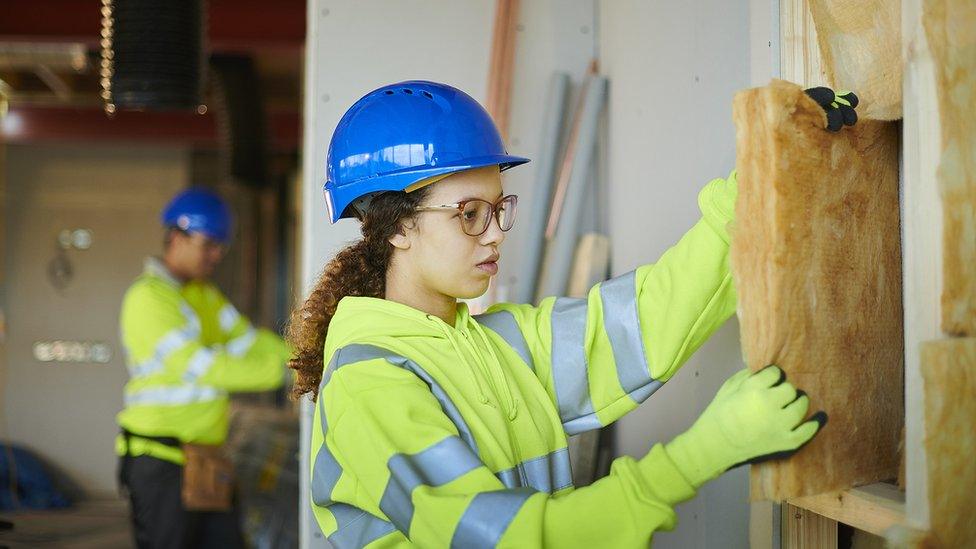'We've taken teabags and meat out of our hampers'
- Published
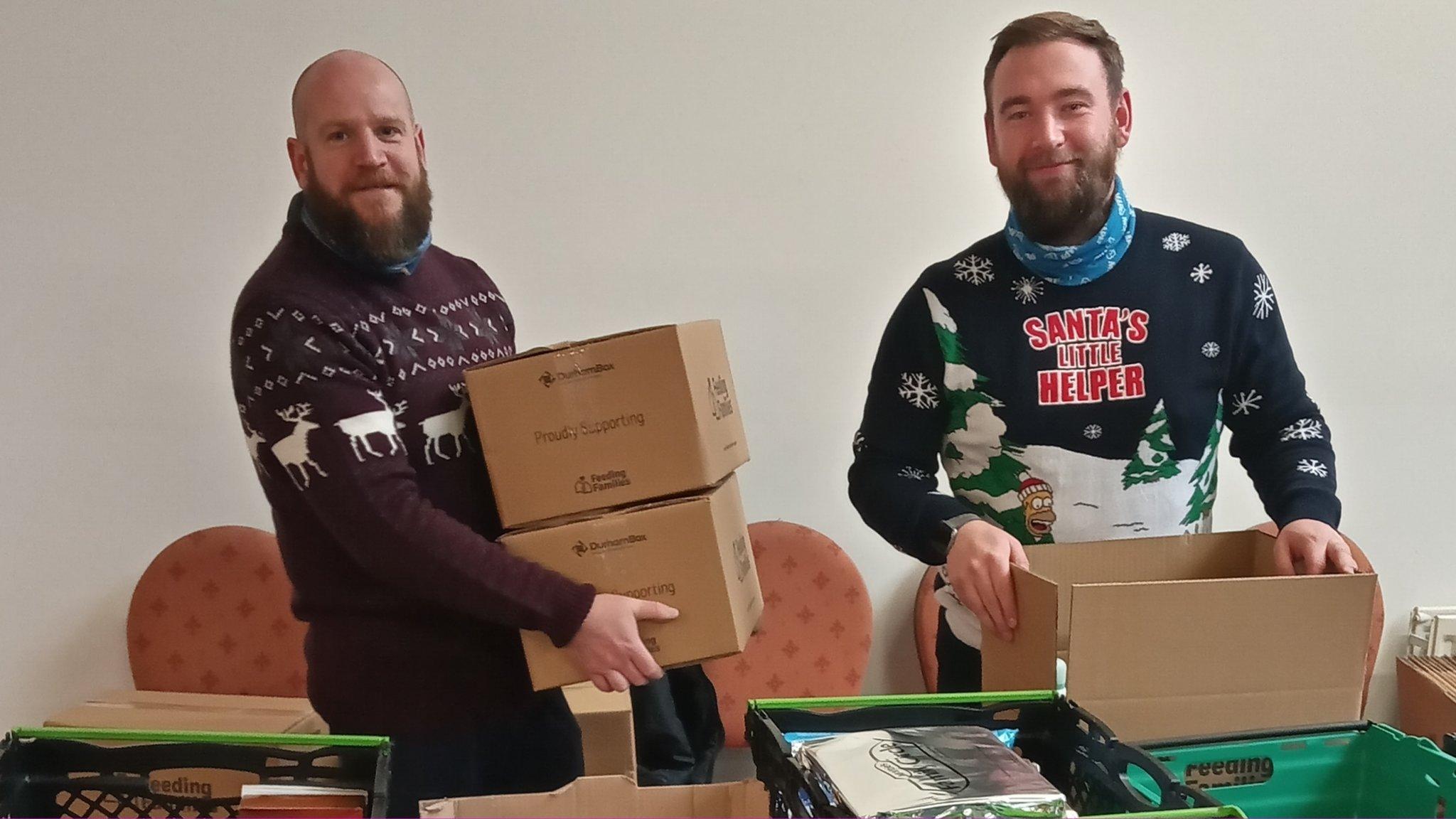
Feeding Families volunteers Sean and Chad with the charity's Christmas boxes
The cost-of-living crisis means some charities face reducing or drastically cutting their services to make ends meet, the BBC has found.
Locality, the national charity network, says some of its members believe they will be forced to close or significantly reduce some of their services over the next six months as their financial position worsens.
Charities that supply food to those in need have been particularly badly affected. Food price inflation rose to 11.6% in October, according to the British Retail Consortium, the highest on record.
'We can't blow the budget on Christmas cakes'
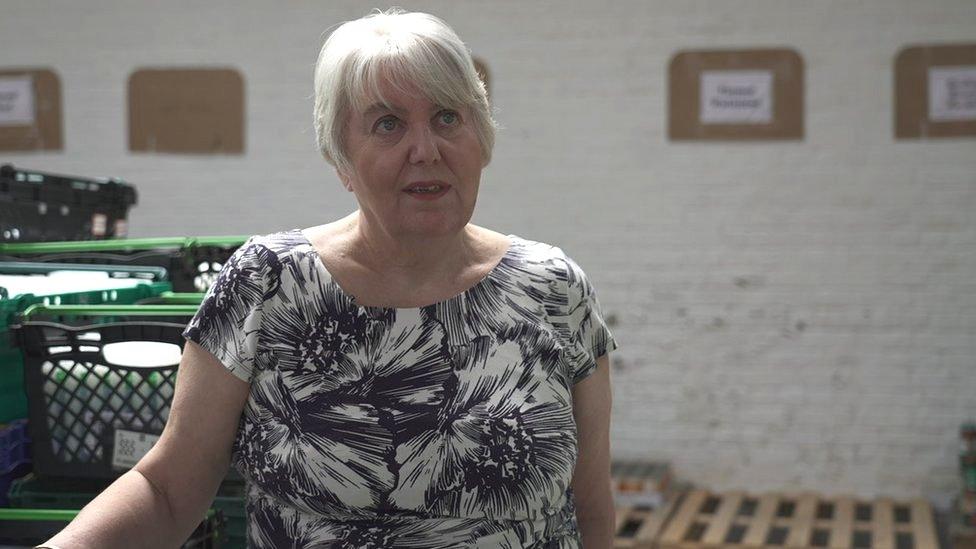
Juliet says her charity can't commit to buying as much as it needs due to rising food prices
In Gateshead, charity boss Juliet Sanders is already worrying about how much Christmas food she'll be able to offer her clients this year.
Her organisation, Feeding Families North East, was set up in 2016 to provide Christmas hampers to a small number of local families.
But demand has grown massively and last year the organisation provided 9,000 hampers.
Early indications are that even more will be requested this year, but Juliet fears the rising costs mean she will not be able to supply everyone.
"Last year, a Christmas cake cost us 93p. This year the price we're quoted is £1.40. At the moment, I can only commit to buying 6,000. I can't blow the entire budget on Christmas cakes," she says, while surrounded by empty pallets in the Feeding Families warehouse.
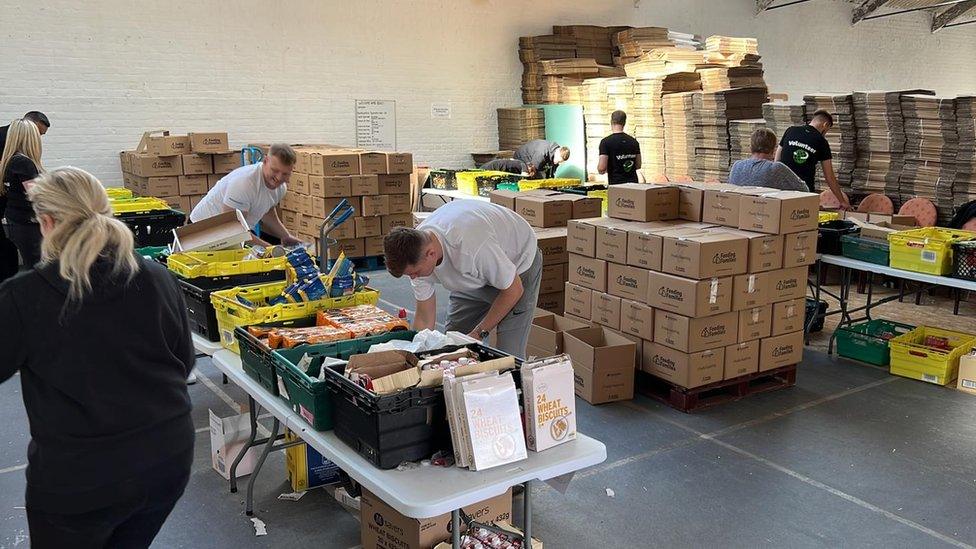
Feeding Families volunteers are already hard at work making Christmas food parcels
Originally focused purely on Christmas, growing need has led Feeding Families North East to become a large provider of food parcels all year round.
It supplies about 1,000 food packets a week, supporting social work departments, schools, food banks, hospitals and probation services.
But rising costs and a drop-off in donations mean it's become ever harder to meet weekly demands and the charity has had to reduce the number of items in each food box from 19 to 17.
"We've taken out teabags and meat - we simply don't have the money to put those items in," says Juliet.
'People don't have the spare money'
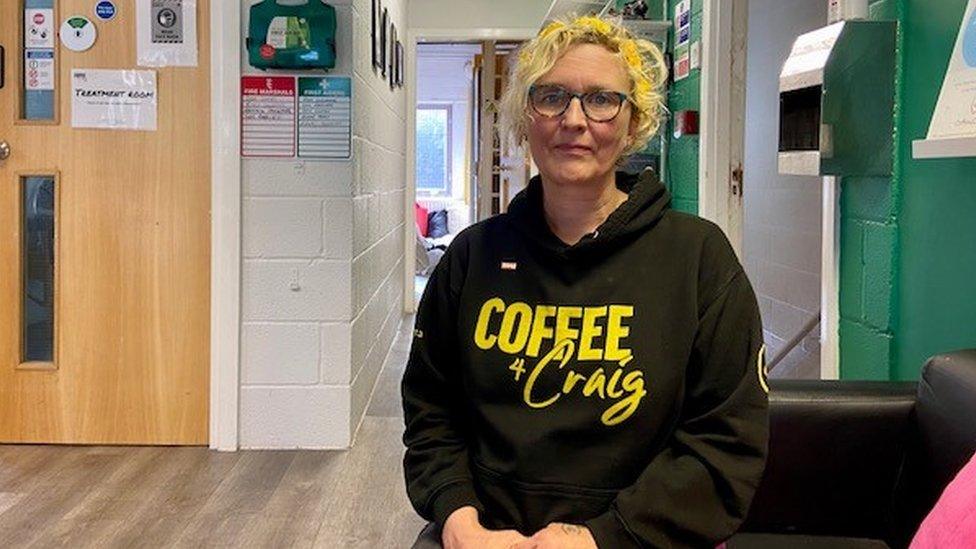
Risha Lancaster set up Coffee4Craig in memory of her brother
In Manchester, it's 17:30 in the evening and a queue has already formed outside the doors of Coffee4Craig, a homelessness charity.
The centre offers hot evening meals seven days a week, alongside showers, clean clothing, toiletries, haircuts, medical support and emergency crisis intervention.
"We did 50 people in the first hour yesterday, 67 in total. Each night we're getting busier and busier," says co-founder Risha Lancaster.
Risha and husband Hendrix set up the charity almost a decade ago after Risha's brother Craig died of an overdose while homeless in Cardiff.
While need may be higher than ever, Risha is assessing whether Coffee4Craig will have to cut down on some services as food costs skyrocket and donations fall.
"We're seeing a lot of people who wouldn't normally end up on the streets, people in crisis due to the cost of living, who are losing their businesses, their jobs, their houses," she says.
"It's difficult because we used to get donations of items we need like boxer shorts, socks, coats, food but those are dropping quite rapidly. The fundraisers aren't bringing in what they used to and the grants are becoming fewer and further between.
"People are really struggling and they don't have the spare money. Our running costs have increased and the price of food has shot up - so when we buy food for the drop-in it's a real struggle.
"The knock-on effect is on the service we provide. We are having to say 'no' to guests who come in for a pair of boxer shorts and socks because we aren't getting the donations."
'National crisis'
Unfortunately Coffee4Craig's predicament is a familiar one for Tony Armstrong, chief executive of community organisations network Locality, who describes it as a "national crisis".
"Our members were at the front line of supporting people through the Covid crisis. They haven't really recovered and now they're facing this double whammy of rising costs and increased demand," he says.
"Local community organisations are resilient and will try to absorb demand as much as possible, but that clearly has a limit.
"Lots of our members run food banks and they are definitely reducing the amount of food they are giving out. Donations are drying up so they're either having to limit people using the food bank, cut the number of days they are open or reduce the amount of services they offer.
"Right now our members are trying to keep things going but I think that picture is going to change very quickly."
Related topics
- Published1 November 2022
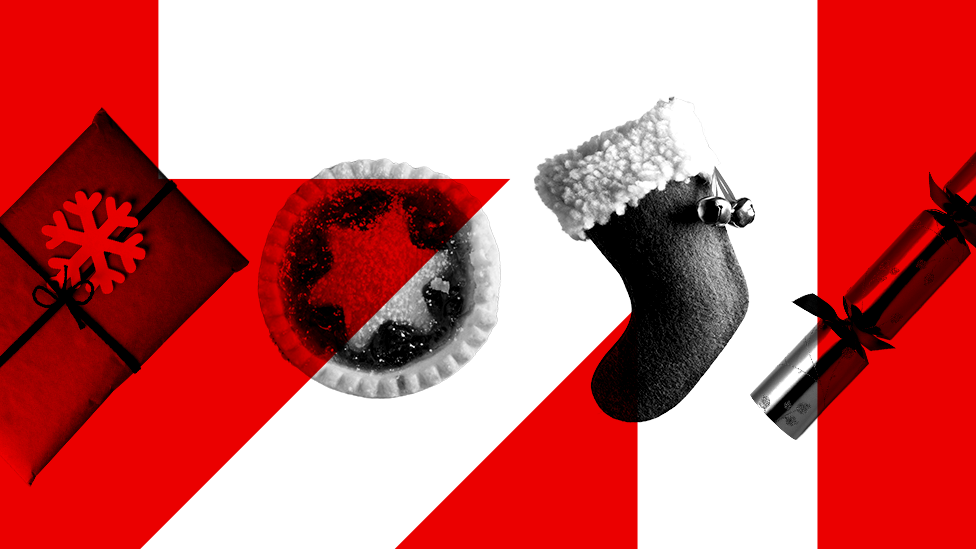
- Published18 October 2022
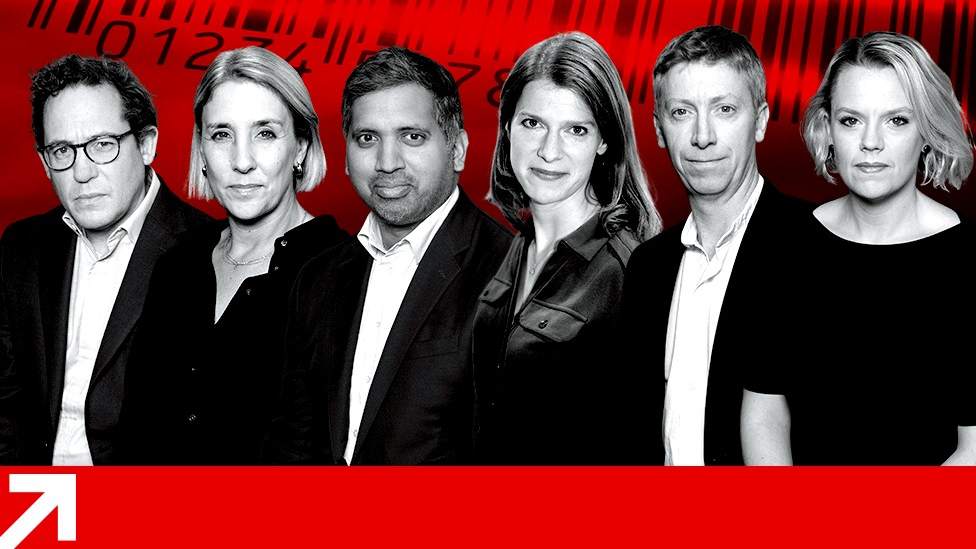
- Published28 November 2022
